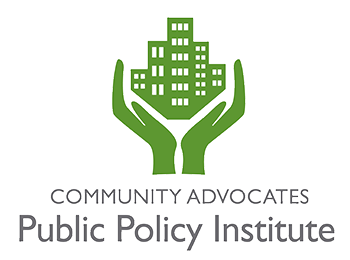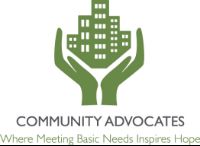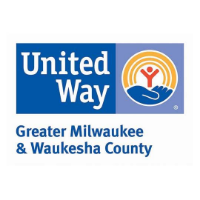The Healthy Workers, Healthy Wisconsin team invites workforce development professionals and others to utilize the materials developed and used during our five-year project. This toolbox includes academic papers, screening and assessment guides, and additional information about the connection between unresolved trauma and employment.
Specifically, Healthy Workers, Healthy Wisconsin aimed to improve the health and well-being of participants by combining:
- Employment services
- Health insurance coverage with primary care physician visits
- Trauma screening with referral to behavioral health services
To learn more about our work, kindly contact Conor Williams at cwilliams@communityadvocates.net or Dimitri Topitzes at topitzes@uwm.edu.
Screening Tools
-
This is a brief explanation of the Trauma, Screening, Brief Intervention and Referral to Treatment (T-SBIRT) protocol. It contains data on the necessity for trauma-screening in a variety of settings in addition to results of a feasibility study demonstrating the utility of T-SBIRT.
-
This checklist is intended for use by trained organization staff (e.g. case workers) to reliably administer high-quality T-SBIRT interviews. Information collected on the protocol can be shared, after obtaining consent from the client, with potential providers to improve the quality of referral and handoff communication.
-
An abbreviated version of the above protocol. It contains all the items of the original but without any example prompts for clients. Ideal for those already trained in how to deliver T-SBIRT and wanting a quicker checklist to ensure adherence to the protocol.
-
Primary Care Post Traumatic Stress Disorder-5 is used to assess post-traumatic stress reactions in the T-SBIRT protocol. It is endorsed by the VA: https://bit.ly/3DWMhTP.
-
The Childhood Experiences Survey (CES) is a trauma exposure screener that assesses for childhood experiences. It includes items from the original adverse childhood experiences study (i.e., five forms of child abuse and neglect and five forms of household dysfunction), but also expands on those original ten items to include an additional eight. The new items reflect experiences that are particularly salient for children growing up in low-income households and/or neighborhoods. The screener includes a final question gauging respondent comfort with the previous 18 items.
-
This comprehensive trauma exposure screening instrument was developed by UWM’s Institute of Child and Family Well-Being to assess for both childhood and adulthood trauma exposure. It can be tailored for many different human service programs, including home visiting, and it can be used as the T-SBIRT trauma screener.
Additional Materials
-
Slides from Dimitri Topitzes' presentation at the closing celebration of the Healthy Workers, Healthy Wisconsin project, held at Bader Philanthropies, November 18, 2022.
-
This two-page graphic is intended for employment service providers and adjacent staff. It provides a concise explanation of trauma and its impact on a person's physical, mental, and social well-being. Included in this are statistics concerning how job-seekers in Milwaukee are impacted by trauma and the benefits organizations can receive by implementing T-SBIRT.
-
This factsheet is to be given to anyone completing the T-SBIRT protocol. It was developed by the Institute for Child and Family Wellbeing and is intended for staff and clients alike. The factsheet provides a working understanding of trauma and helpful strategies to manage potential problems resulting from trauma. It is not a replacement for clinical treatment, but can help clients to understand and potential advocate for their own needs.
-
This fact sheet documents the participant flow for W2 and reentry participants in the HATCH initiative.
-
Local resources for mental health and substance use services, including culturally relevant resources for Black people, Spanish speakers, survivors of domestic violence, families, LGBTQ+ individuals, and more.
Recursos en español
-
¿Qué es el trauma?
El trauma es un evento, una serie de eventos o un conjunto de circunstancias experimentadas por un individuo como físicamente o emocionalmente dañino o potencialmente mortal. También tiene efectos adversos duraderos en el funcionamiento del individuo y el bienestar mental, físico, social, emocional o espiritual. -
La Encuesta de Experiencias de la Infancia (CES) es un evaluador de exposición al trauma que evalúa las experiencias de la infancia. Incluye elementos del estudio original de experiencias adversas en la infancia (es decir, cinco formas de abuso y negligencia infantil y cinco formas de disfunción del hogar), pero también amplía esos diez elementos originales para incluir ocho adicionales. Los nuevos elementos reflejan experiencias que son particularmente destacadas para los niños que crecen en hogares y/o vecindarios de bajos ingresos. El evaluador incluye una pregunta final que mide la comodidad del encuestado con los 18 elementos anteriores.
-
Esta lista de verificación está diseñada para que la use el personal capacitado de la organización (por ejemplo, trabajadores sociales) para administrar de manera confiable entrevistas T-SBIRT de alta calidad. La información recopilada en el protocolo se puede compartir, después de obtener el consentimiento del cliente, con proveedores potenciales para mejorar la calidad de la comunicación de derivación y traspaso.
-
El trastorno de estrés postraumático de atención primaria-5 se utiliza para evaluar las reacciones de estrés postraumático en el protocolo T-SBIRT. Está avalado por el VA: https://bit.ly/3DWMhTP.
-
Este instrumento integral de evaluación de la exposición al trauma fue desarrollado por el Instituto de Bienestar Infantil y Familiar de UWM para evaluar la exposición al trauma tanto en la niñez como en la edad adulta. Se puede adaptar para muchos programas de servicios humanos diferentes, incluidas las visitas domiciliarias, y se puede usar como el evaluador de trauma T-SBIRT.
Academic Research
-
Mueller, D., Bacalso, E., Ortega-Williams, A., Pate, D. J., & Topitzes, J. (2021). A mutual process of healing self and healing the community: A qualitative study of coping with and healing from stress, adversity, and trauma among diverse residents of a midwestern city. Journal of Community Psychology, 1–26. https://doi.org/10.1002/jcop.22530
-
Topitzes, J., Mersky, J., Mueller, D., Bacalso, E., & Williams, C. (2019). Implementing Trauma Screening, Brief Intervention, and Referral to Treatment (T-SBIRT) within employment services: a feasibility trial. American Journal of Community Psychology, 0:1-12.
-
Topitzes, J., Berger, L., Otto-Salaj, L., Mersky, J., Weeks, F., & Ford, J.D. (2017). Complementing SBIRT for alcohol misuse with SBIRT for trauma: a feasibility study. Journal of Social Work Practice in the Addictions, 17:188-215, 2017.
To learn more about our work, kindly contact Conor Williams at cwilliams@communityadvocates.net or Dimitri Topitzes at topitzes@uwm.edu.





